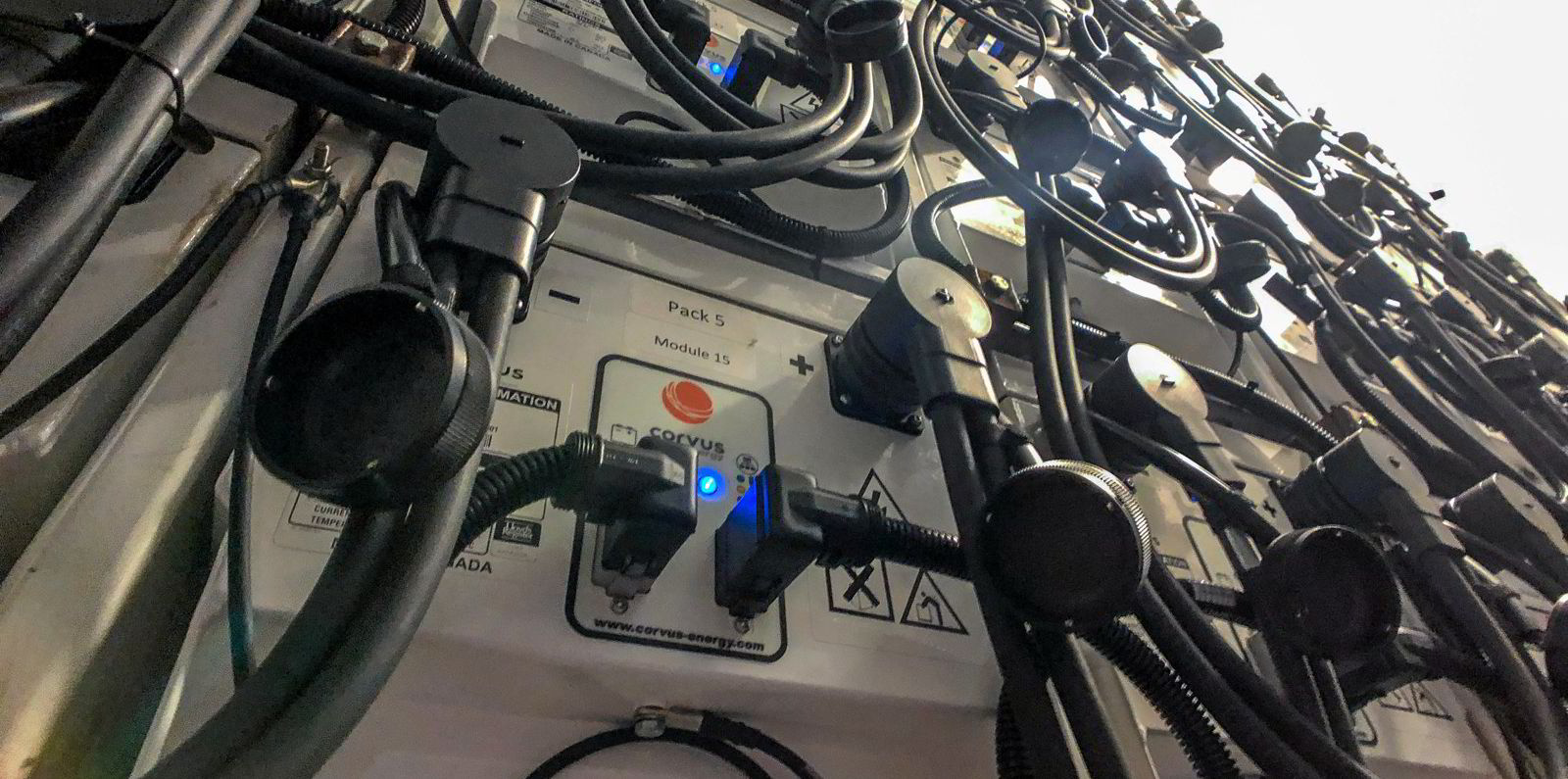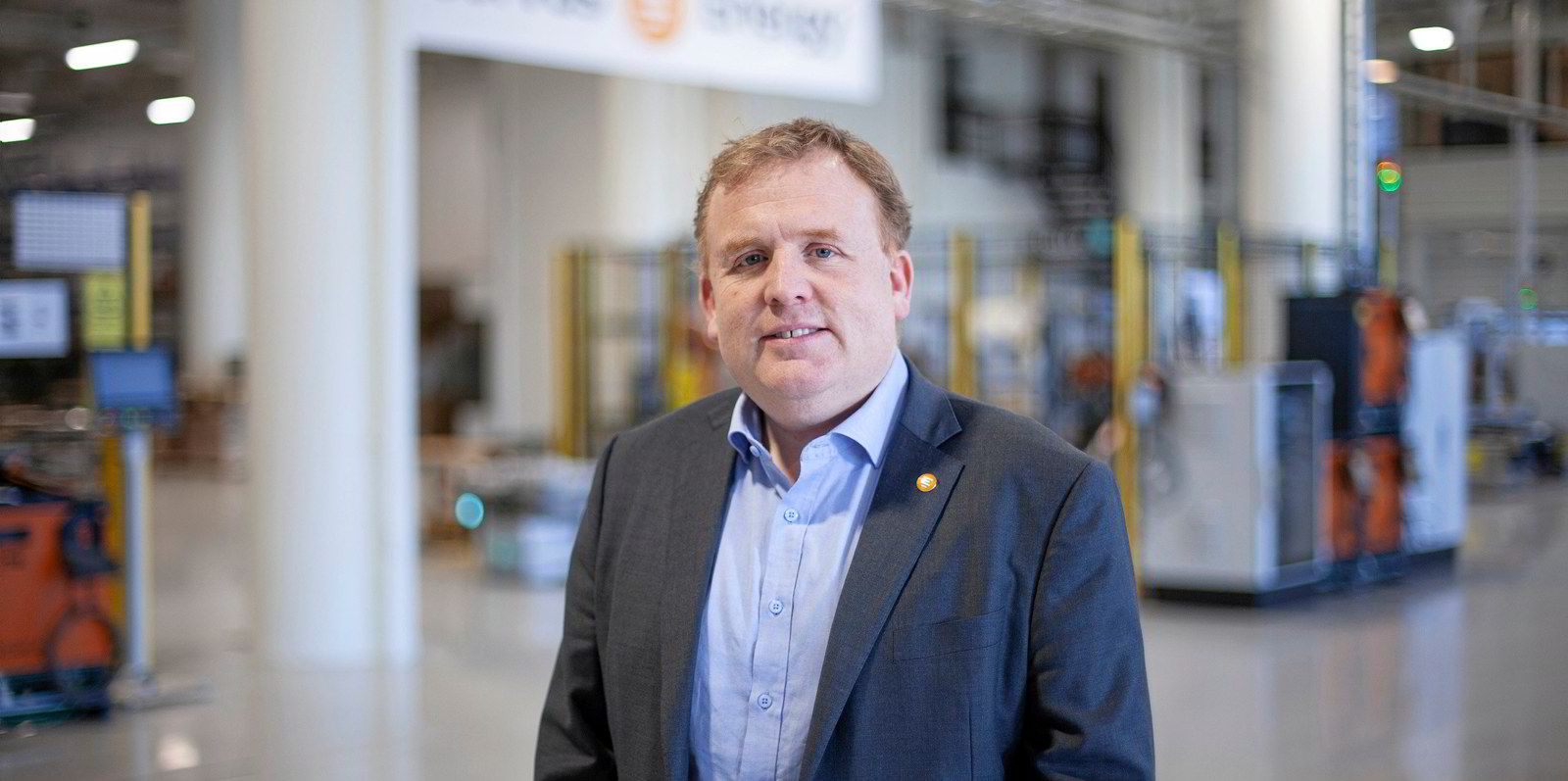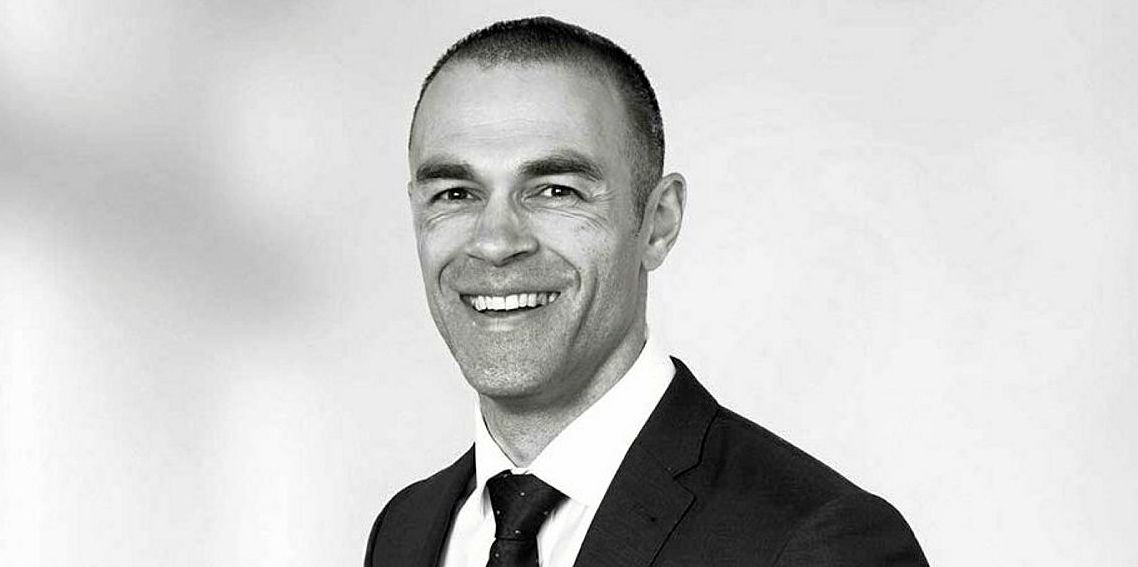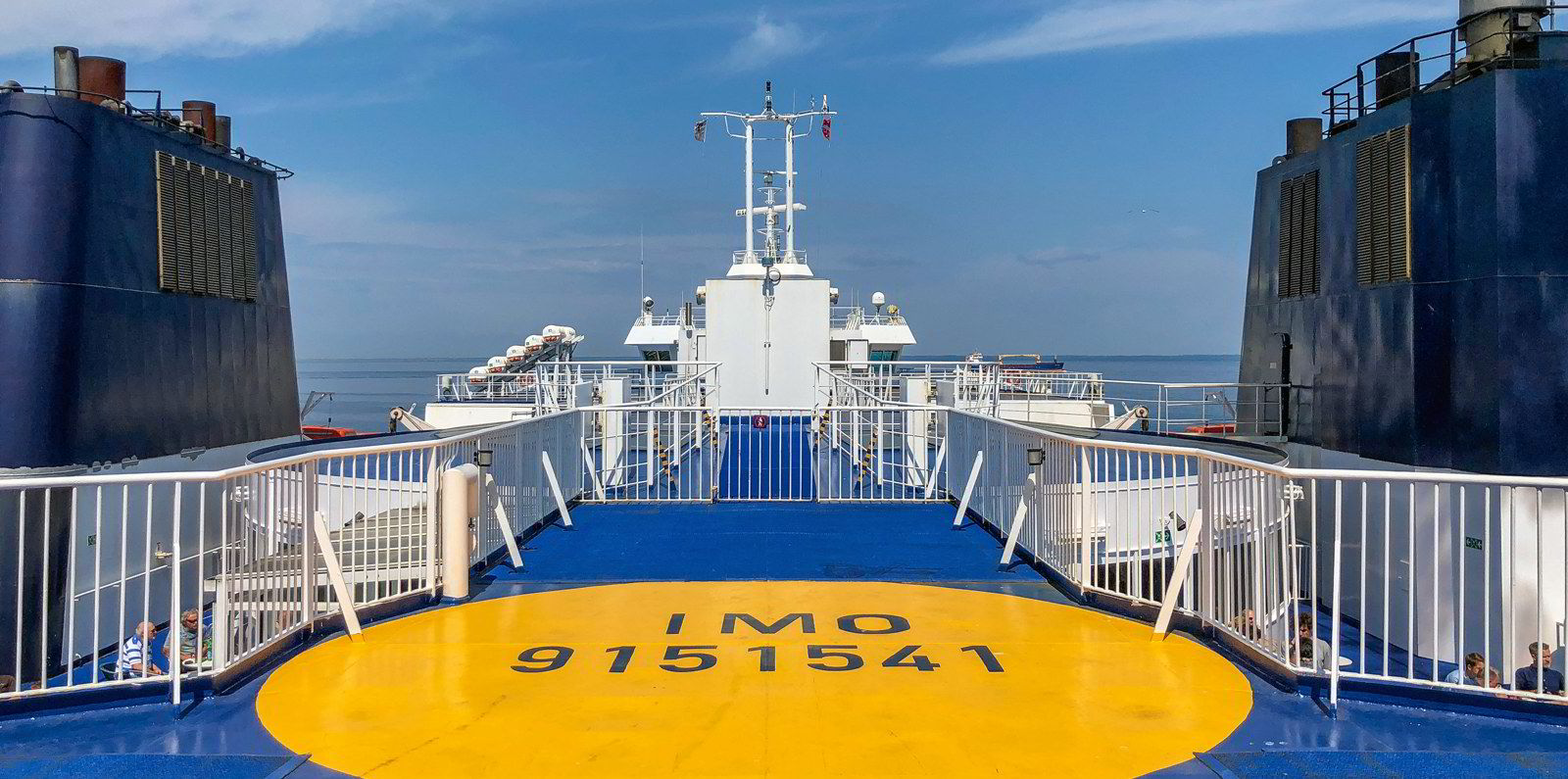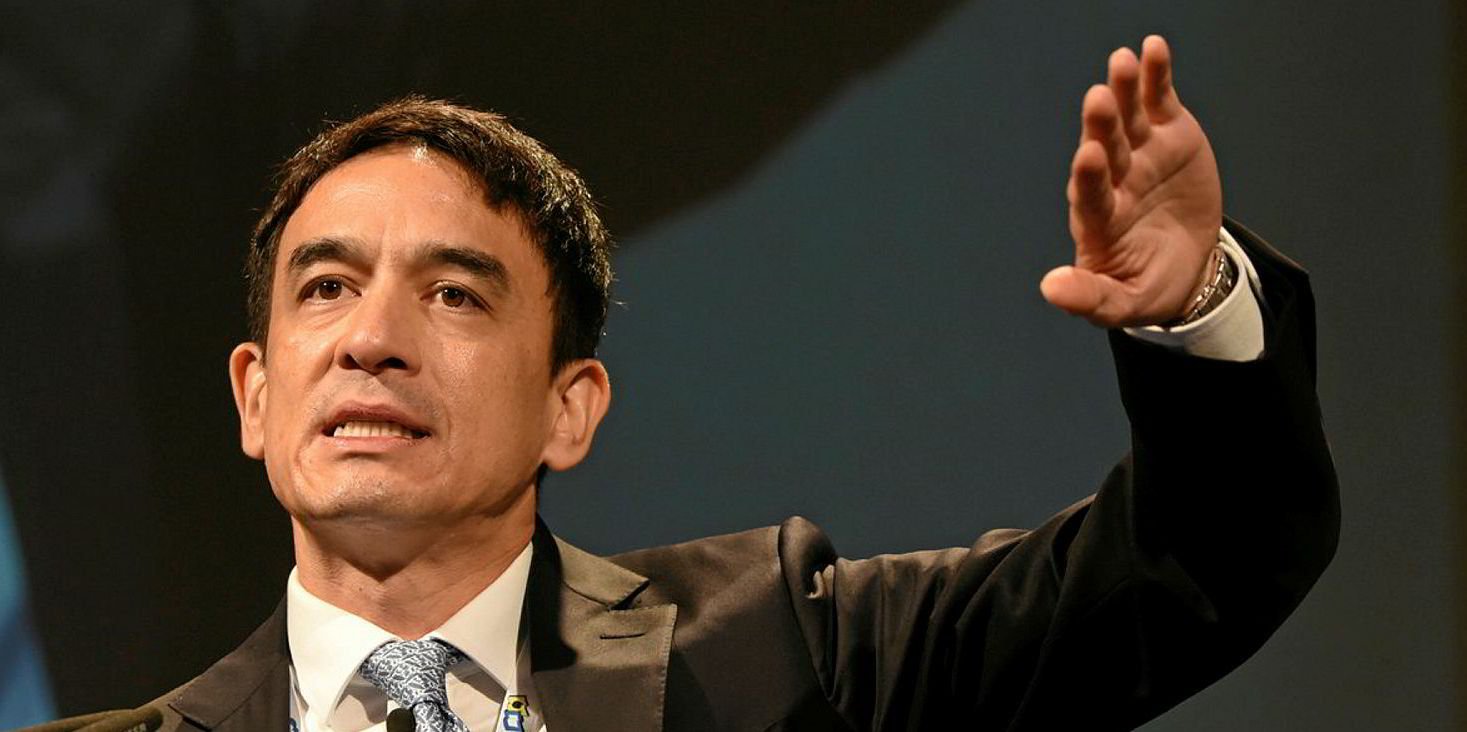Geir Bjorkeli, chief executive of Canadian-Norwegian marine battery specialist Corvus Energy, believes the electrification of shipping depends on the much larger automobile industry for efficiency and scale.
Bjorkeli holds out hopes for Norwegian battery cell manufacturing start-up Freyr to cut the cost and carbon footprint of marine batteries, using northern Norwegian hydropower.
He also remains optimistic for big boxships as a market, even after AP Moller-Maersk turned lukewarm.
Corvus and Freyr are two ventures with significant Norwegian state support that have drawn shipowner investors, as well as recruiting ex-shipping executives.
Corvus, well-established as a marine specialist, occupies the downstream end of Norway’s expanding battery business, and Freyr the upstream.
Bergen-based Corvus has been supplying marine battery systems for several years and is now adding hydrogen cell applications to its product mix through a tie-up with Toyota.
Norsk Hydro, Equinor, Shell and BW are its main owners.
Freyr, as a cell maker, would be a supplier to companies such as Corvus that build battery sets for use in specific applications.
Freyr is Norwegian-owned but is going public in New York through a reverse merger with Alussa Energy Acquisition Corp.
The Freyr special purpose acquisition company listing has attracted investors including the Lolli-Ghetti family’s private Scorpio Holdings, the Koch family, Glencore and Fidelity.
Its planned factory at Mo i Rana just under the Arctic Circle touts a long list of major industry partners who cooperate as potential suppliers and customers, including Glencore and Maersk.
Freyr founder Torstein Dale Sjotveit is a former chief executive of Aker Yards. Chief financial officer Steffen Foreid held the same position at Hoegh LNG.
Corvus is staffed largely with veterans of power plant suppliers Wartsila, Rolls-Royce and ABB, but also employs at least one shipowning veteran, Ronald Hansen, former fleet director of chemical tanker owner Anders Utkilens Rederi.
Bjorkeli believes development of the marine battery industry depends on the parallel development of broader landside power storage applications — the electric vehicle and industrial markets.
“Marine will never give you the volume that is needed,” he said. “The marine market is big enough for us, but we need to be able to tap into the supply chain from other industries.”
Thanks to government policy, Norway’s car market is one of the most electrified in the world. That helps in building scale to support marine applications of batteries and hydrogen fuel cells.
Corvus, which builds battery sets, found that when it sourced battery cells from companies that were aimed at industrial applications rather than the marine market, the cost per kilowatt hour (kWh) went down from more than €1,400 ($485) to less than €600.
“That is still too high,” said Bjorkeli, who has a target price of less than €500/kWh. He believes the Freyr project developers, with a plant running on low-cost, low-carbon hydropower, can get the price below that.
Batteries are not priced exactly in terms of kWh, but the cost of producing power is measured that way as a basis for cell price comparisons. The price of cells is more than half of the cost of the delivered marine battery set.
Fully electric vessel power is only an option in operations that allow constant onshore recharging. For the time being, that means ferries and shuttle vessels and possibly shortsea trading in the future.
But marine batteries as a hybrid power solution will have a growing market for use alongside new fuels, and Corvus is diversifying as a supplier of hydrogen cell power through a partnership with Toyota, the biggest producer of hydrogen fuel cells for automotive use.
Toyota signed up with Corvus in February for a cooperation to adapt its products for marine use.
Corvus announced it would invest up to NOK 400m ($48.5m) in the first stage of that project and also received a NOK 54m grant from state export promotion agency Innovation Norway.
Bjorkeli said shareholder BW favours the scheme: “We have enormous support from Andreas Sohmen-Pao. He strongly believes shipping needs to take responsibility for reducing its own carbon emissions.”
